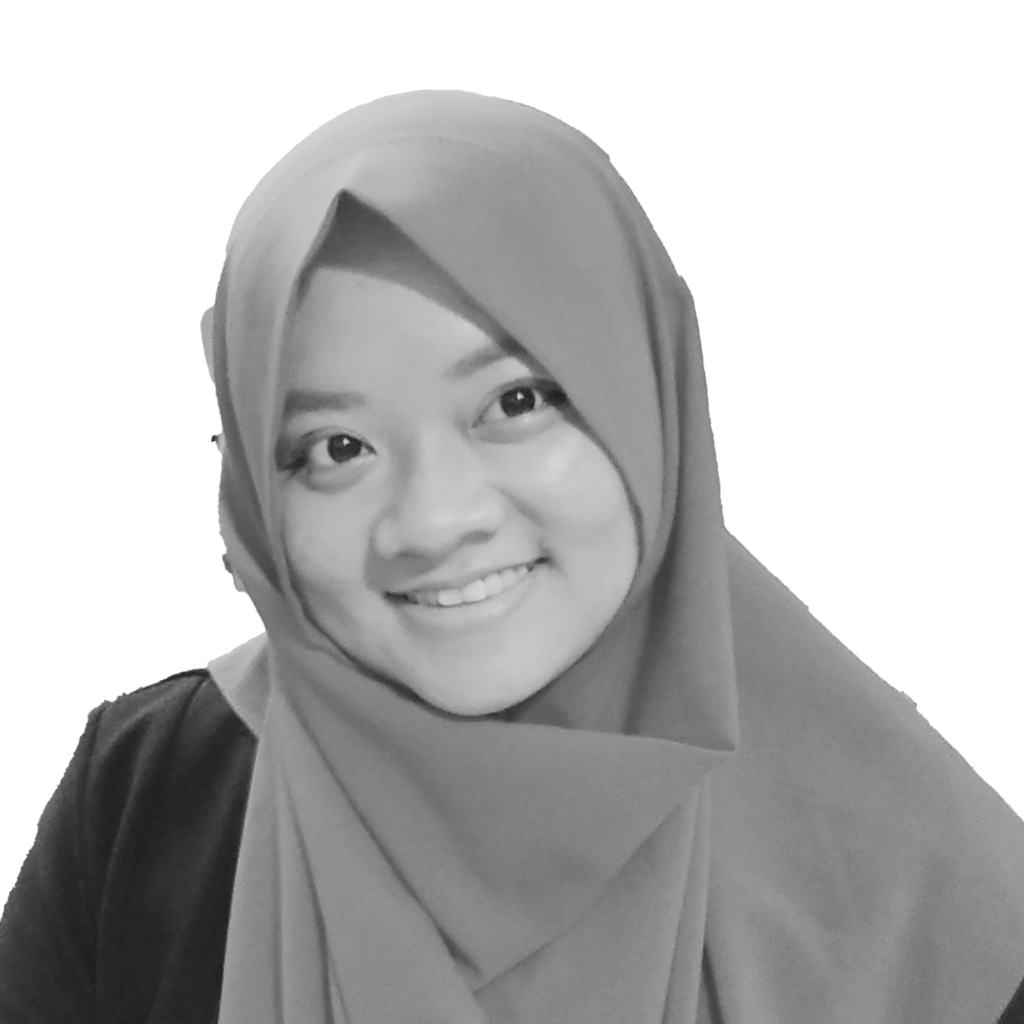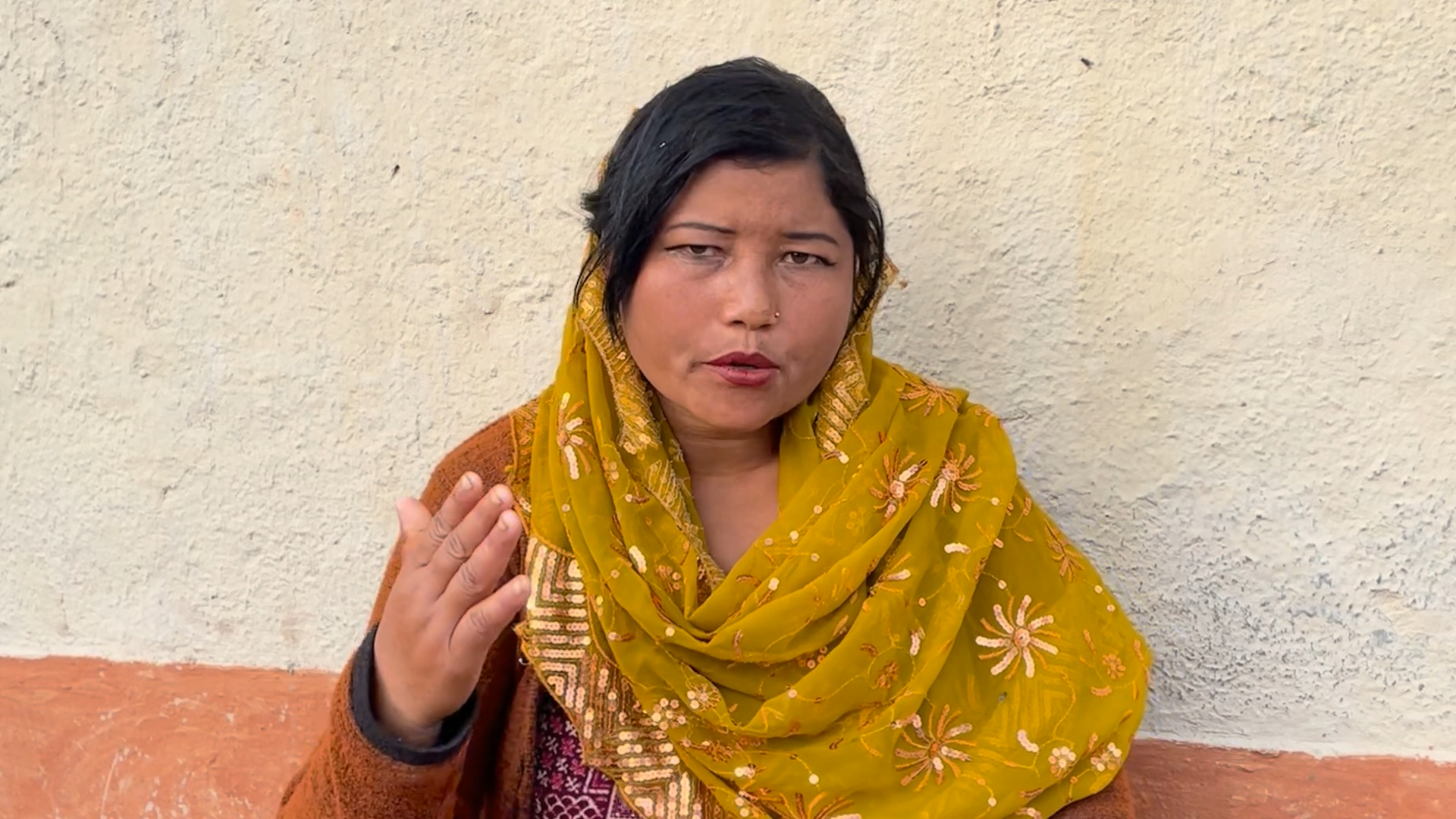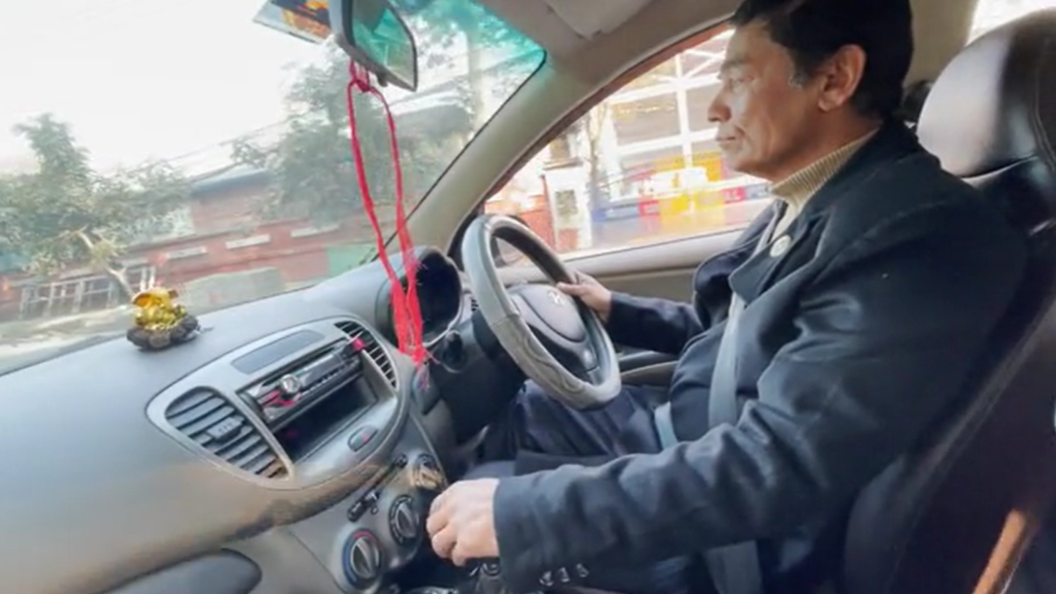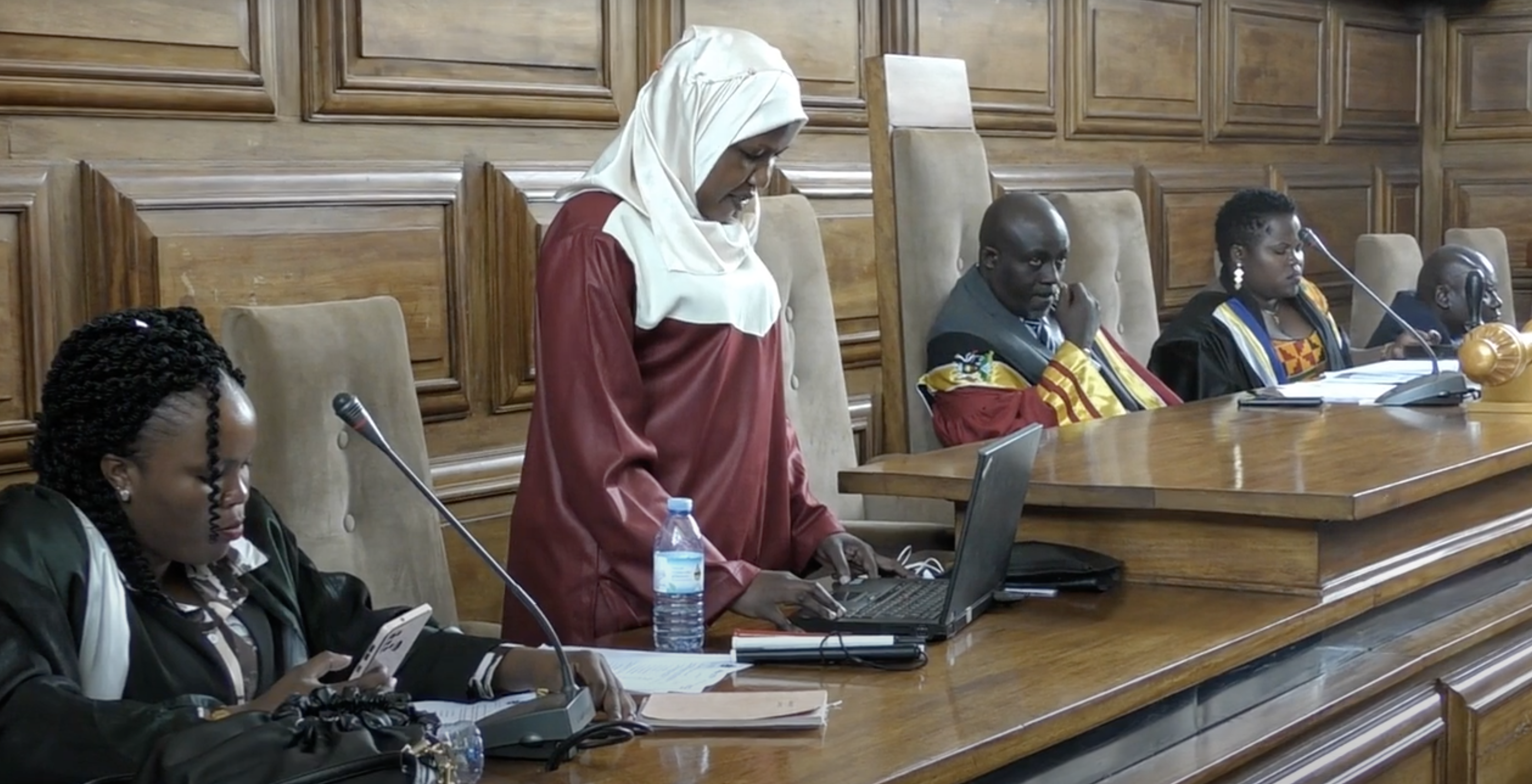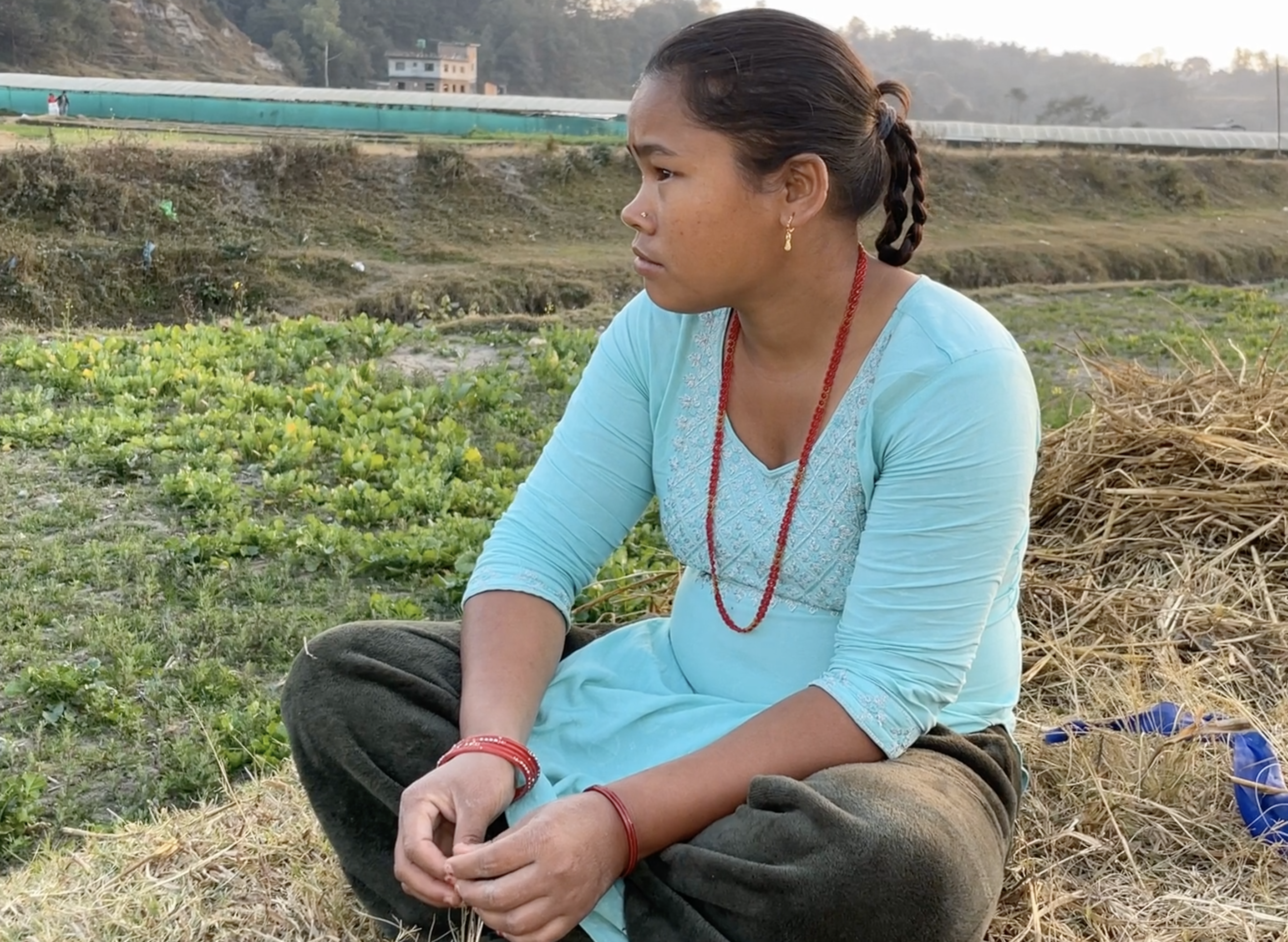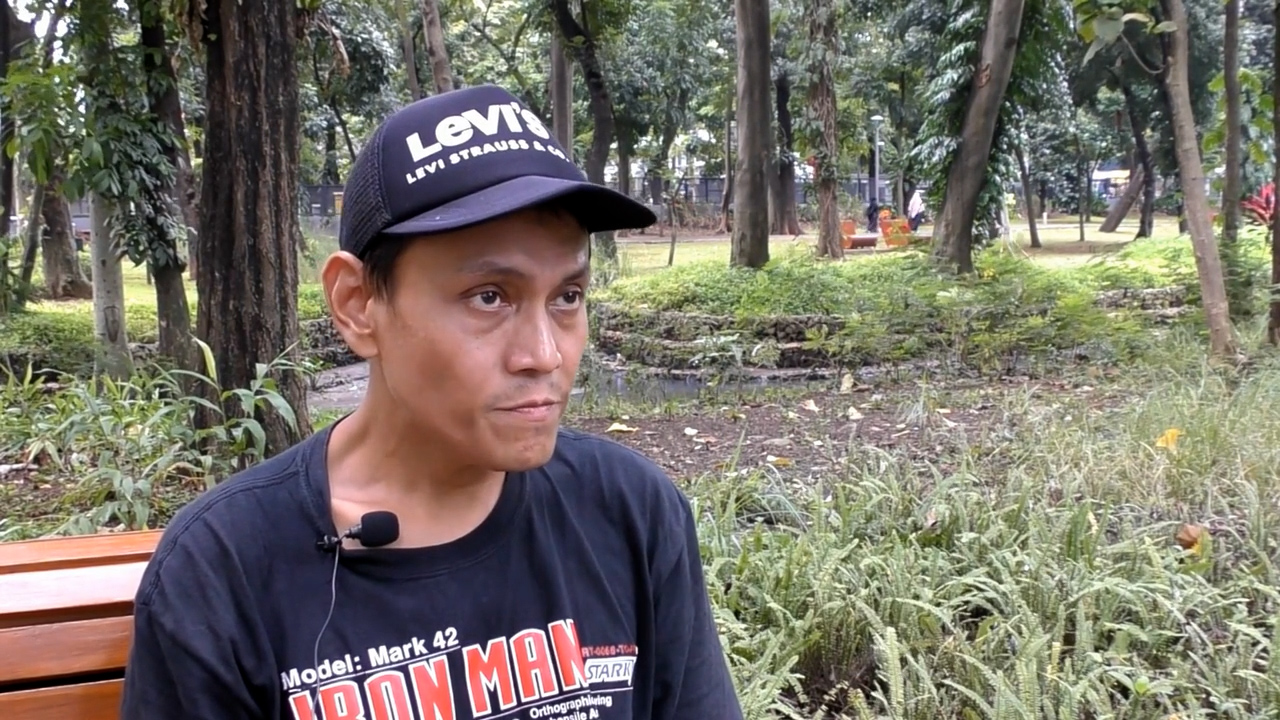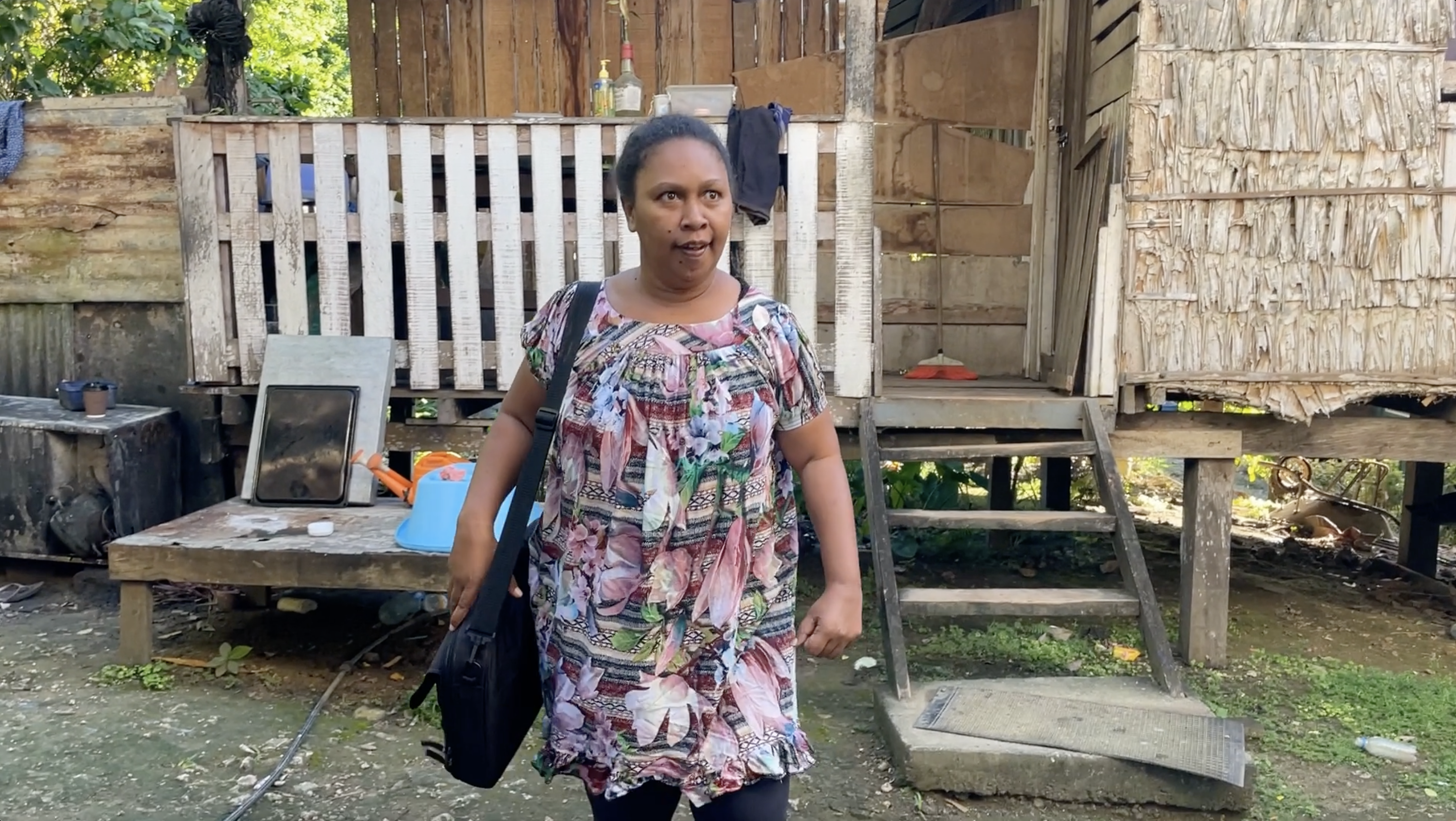Transcript for Denied Assistance
The video starts with a timelapse of clouds passing over a tall white monument and a green pool with foundation sprinklers. A statue is in front of the monument. Palm trees surround the pool. High-rise buildings are in the background. Soft piano music plays throughout the video.
Cut to black text on a yellow screen that says, “Because of employment barriers, many Indonesians with disabilities have no steady income. Forced to live with family members, they are caught in a cycle of dependency. This cycle is reinforced by the Indonesian government’s policy to focus social assistance on families and not individuals.”
Cut to Yeni Rosa Damayanti, an Indonesian woman with black shoulder-length hair, sitting in an office and speaking to the camera in Bahasa Indonesia: “My name is Yeni Rosa Damayanti. The government’s social protection schemes are usually family-based.” She is chairperson of the Indonesian Mental Health Association (IMHA). Several items rest on a beige table behind Damayanti; a letter and certificate in frames, an award, and plants in a pot.
Cut to Damayanti sitting at a table outside and holding a white mug. Plants are behind her. She speaks to someone off-camera.
Cut to Damayanti speaking in the office, “So the social protection is given to families who fall into the poverty criteria.”
Cut to Damayanti speaking to an audience off-camera in an office. She is standing up and using hand gestures to communicate with her audience. She also holds a plate of food. A white sheet of paper tapped a brown door in the background contains text that says, “Kosong” (empty).
Cut to Damayanti speaking in the office, “The problem is that many people with disabilities live with their families.”
Cut to a man pushing a woman in a wheelchair. The woman in the wheelchair has black hair in a ponytail. The man’s face mask hangs on the left side of his face. Two people walk in front of the man and the woman in a wheelchair and enter a house. The man helps the woman in a wheelchair stand up. A pool is in the foreground. Damayanti’s voiceover continues, “And the families they live in are not necessarily categorized as poor.”
Cut to an aerial shot of the Indonesian parliament building, a low-rise building with a curved light green roof. Several high-rise buildings and trees are in the background. People are at the steps leading up to the parliament building. Damayanti’s voiceover continues, “The government is expected to change its perception of social assistance, no longer aimed at only poor families but also aimed at poor individuals with a very easy criterion, individual income.”
Cut to Damayanti speaking.
Cut to a close-up, slow-motion shot of an Indonesian person counting Indonesian rupiah banknotes.
Cut to Damayanti speaking with hand gestures to an audience off-camera. A flower painting in a frame hangs on a wall, and a window is in the background.
Cut to Damayanti speaking, “Our hope is because people with disabilities have extra costs of disability that non-disabled people don’t experience, they should get an allowance, at least to cover the extra costs.”
Cut to a woman in a wheelchair wearing a pink hijab and moving by a busy sidewalk with her family. A man pushes the wheelchair, and another holds one handle of the wheelchair. Several people are talking and moving around the sidewalk and others prepare to take a group picture in the background. Most of the people on the sidewalk are wearing face masks. Damayanti’s voiceover continues, “So there should be disability benefits provided to all persons with disabilities.”
Cut to Damayanti speaking, “Irrespective of their economic condition.”
Cut to a pan shot of a dimly lit living room with a brown couch, white-and-gray window curtains, and a picture frame on a wall. Cut to Bambang’s distorted voiceover in Bahasa Indonesia: “I don’t get cash assistance at all.” Bambang is a man with a psychosocial disability who wishes to remain anonymous.
Cut to a close-up shot of Bambang’s hands. He is seated on the brown couch. He says in a distorted voice, “And for DTKS [Social Welfare Integrated Data], honestly, I really want my data to be there [to be a candidate for DTKS recipient].”
Cut to Bambang getting up from the brown couch and walking to another room on the left. There are other brown chairs around the living room area. His distorted voiceover continues, “Because it is DTKS that determines whether we get KPDJ [Jakarta Disability Card] or not.”
Cut to Bambang speaking on the brown couch.
Cut to black text on a yellow screen that says, “While Bambang doesn’t work and has no income of his own, his eligibility for social assistance is based on his family’s income, not his own. Because his mother and sister live in a larger house in a wealthier part of town, they are considered too “rich” for him to qualify for assistance.”
Fade to another yellow screen with black text that says, “This leaves Bambang dependent on others for his survival. If he lives with his family, he is denied social assistance; if he doesn’t live with his family, he will become homeless.”
Cut to a pan shot of cars and motorcycles passing by a busy street lined with homes and small shops. Few people stand on the busy street. Bambang’s distorted voiceover continues: “I think we are most entitled to get KPDJ because we are people with disabilities.”
Cut to Bambang opening his white front door, fixing his black sandals, then leaving his house. His distorted voiceover continues, “We have additional living expenses such as medicine.”
Cut to Bambang speaking in a distorted voice, “If that (KPDJ) can reach us, it will really help us as people with disabilities.”
Fade to black text with a yellow border on a black screen that says, “Copyright – @2022 IMHA. All rights reserved.”
Fade to black text with a yellow border on a black screen that says, “Made with support from the Disability Justice Project and Disability Rights Fund.” The Disability Justice Project logo is a large yellow “D” with a black play button in the middle to signify video storytelling, and white text says “Disability Justice Project” on the bottom left. The Disability Rights Fund logo – a white box with black text that says, “Disability Rights Fund” – is on the bottom right of the screen.
